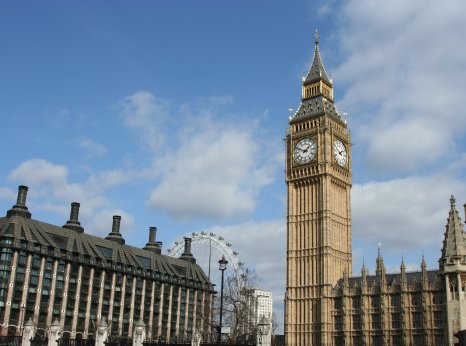United Kingdom: End Prosecution of Peaceful Protestors

’Defend our Juries’ is an activist-led, UK-based group that has made clear it neither promotes nor endorses violence. The arrested protesters come from a wide range of ages, professions and backgrounds, and a significant number of older adults. Protesters are peacefully expressing their outrage at Israel’s ongoing genocide against Palestinians in Gaza, a viewpoint they are entitled to hold and express peacefully under international human rights law. Numerous human rights groups, including Amnesty International, have documented and exposed extensively Israel’s continuing genocide against Palestinians in the Occupied Gaza Strip.
Prior to the 9 August London protest, Amnesty International urged the London Metropolitan Police Commissioner to respect the protesters’ rights to freedom of expression and peaceful assembly by not arresting them for holding placards/signs. Amnesty International has written similarly to police chiefs in Scotland and Northern Ireland and Scotland’s Lord Advocate.
Prosecutions under terrorism-related legislation, even without a conviction, can have serious and lasting consequences on individuals. These include restrictive bail conditions, surveillance, reputational damage, mental health impact, and negative consequences on employment, education and travel. A conviction under laws like the Terrorism Act 2000 brings even more severe consequences: a lifelong criminal record, visa and immigration issues, loss of job opportunities, professional licenses, and access to services, along with long-term social stigma and psychological harm. When such prosecutions target peaceful protest and civil disobedience, they create a chilling effect—deterring people from exercising their rights to free expression, protest, and political activism out of fear of being criminalized as ‘terrorists’.
The arrests of peaceful protesters simply for displaying the message ‘I Oppose Genocide. I Support Palestine Action’ violates UK’s international obligations to protect freedom of expression and peaceful assembly. Protesters have a right to peacefully express outrage at the ongoing genocide by Israel against Palestinians in Gaza. Under the international human rights framework to which the UK is a party, state interference with expression and peaceful assembly must be lawful, and a necessary and proportionate means of achieving a legitimate aim. Expression of support for a proscribed organisation could only meet this threshold, if that expression were likely to induce its audience to partake in violence, and to do so imminently. As part of this assessment, the particular facts of the expression, the proscription and the nature of the organisation in question must also be considered. In this instance, it cannot be justified to treat expression of support for Palestine Action as inherently and uniformly incitement. Caselaw by the European Court for Human Rights stated that placards are protected speech unless they directly and expressly constitute incitement.
The legal basis for the use of terrorism-related legislation to carry out the arrests and initiate prosecutions against peaceful protesters is questionable as the High Court has allowed Palestine Action to seek judicial review of their proscription, suggesting it may be unlawful. Given this, continuing arrests would be a reckless use of police power, and inevitably risk breaching the test of legality. There is no reasonable basis to consider participants at ‘Defend our Juries’ actions as inciting violence. Consequently, arresting them is both disproportionate and a clear violation of the UK’s obligations under international human rights law. Furthermore, categorising such individuals as ‘terrorists’ is deeply inappropriate and absurd.